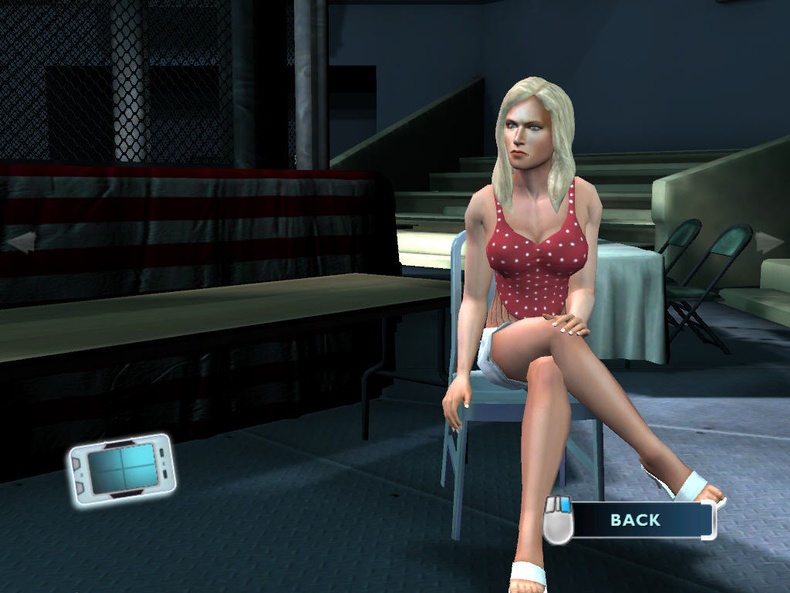CSI: Miami is a video game based on the CSI: Miami television series. The game was developed by 369 Interactive, published by Ubisoft, and was released for the Microsoft Windows on April 24, 2004. In 2008, Gameloft redeveloped the game for iOS. This game, like CSI: Crime Scene Investigation, follows a distinct pattern of five cases, with the.
Csi Games Downloads
It was bound to happen sooner or later. CSI's fascinating emphasis on forensic science combined with the intrigue of police drama made it an obvious choice for a game, one that could dust off the adventure genre's cobwebs and give audiences an excuse to use their gray matter as they lift fingerprints, swab sticky substances, and hold magnifying glasses to find trace evidence. The game would ideally be like a Sherlock Holmes mystery but with hipper technology to play around with. In the world of CSI, a strand of hair or dandruff flake could be enough to put a suspect behind bars. What better way to promote the top-rated drama than to have players actually do the detective work?

- The official athletics website for the College of Southern Idaho Golden Eagles.
- This is a game-like activity where kids can follow the experts from the TV show CSI to learn about how forensic science helps solve crimes. From forensics.rice.edu Added February 25, 2011.
CSI offers a series of five cases, each led by one of the five cast members of the Las Vegas Crime Lab. As an intern, players are silent observers of the crime scene and work by themselves to collect the necessary evidence that leads to a suspect's arrest, satisfying the three conditions of means, motive, and method. The game is played from a first-person viewpoint with an icon-based interface along the bottom of the screen that lets players access one of 14 tools, jump to the LVPD office, crime lab, or autopsy room, or view collected evidence and case files. Crime scenes are the primary focus of a player's attention, with more destinations opening up as the evidence warrants.
Unfortunately, the developers must have overlooked the majority of adventure games in the decade prior to CSI's release, because there is nothing remotely interesting or new about the gameplay. To be blunt, the game looks and feels painfully out of date. Each crime scene looks awful, not because it's a site of a gruesome murder, but because it's blurry and pixilated, making the goal of trying to click on items in plain view difficult. It's hard to determine if there's something of interest on the walls or along the floor when everything looks like a blotch or a blemish, so players end up waving their mouse up and down the nondescript areas until the pointer turns green, which signifies a 'hotspot' and thus an important piece of evidence.
The biggest problem with the graphics is the developer's obvious inexperience in creating a full 360-degree panoramic view, which involves players moving the mouse to the far edges of the screen to spin the room as if it were a seamless whole. Unfortunately, players can only look at specific areas in a room, so if they manage to notice an aquarium or dresser, they can't investigate them further -- for potential clues or just for fun. With only five cases and maybe ten locations in the entire game, everything in the environment should have been clickable, with players making decisions on what is valuable evidence and what isn't. Yet everything in this game is important, reducing the game and the process of forensics to a basic exercise in pointing-and-clicking.
Clicking on a hotspot, assuming players find one amidst the visual murkiness, takes them to a close-up view of the area. The graphics are much better in these views, since they are generally composed of high-resolution still photos. Most environments are dark, however, so players should be prepared to adjust their monitors so they don't miss evidence. Once they are in the zoomed-in view, players can use the tools for detection (magnifying glass, ultraviolet light, etc.) and then collection (cotton swabs, tweezers, and so forth). After evidence is collected, it goes into a player's inventory to be processed at the crime lab.

Selecting the crime lab takes players to a single screen, where Greg Sanders always leans back in his chair in a slow animation sequence and says one or two things while the supervising CSI member stands in the corner. The same boring routines occur in both the autopsy room and Jim Brass' office; the view always remains the same and players are extremely limited in their actions. In the lab, players just click and drag most evidence to Greg and he will say what it is. Other times, players are allowed to do some basic comparisons using the microscope and computer. The microscope is used maybe once or twice the entire game to compare hair samples. Players place them on the platter and their partner automatically says if it's a match or not, so there's not even the satisfaction of making a determination on your own.

The computer is useful for comparisons and searches on tire tread patterns, names, and fingerprints, which again, is a simple matter of dragging the evidence to the screen and pressing the search or compare button. As in the hair samples, players aren't allowed to analyze the material on their own, just to sit back and listen to the results. Unfortunately, that's essentially the entire game. The ratio of listening to characters talk to actually doing something is completely out of whack, and players shouldn't expect to do much of anything except for clicking on evidence and choosing from a list of questions to ask during interviews (there's no reward or penalty for asking or not asking the 'right' ones because the questions are, in effect, all important).
There is so much that could have been done with the game: puzzles where players have to assemble shattered glass fragments to determine the point of impact; helping to reconstruct facial features on unidentified skulls using clay; identifying fingerprint matches using the actual point system used by scientists; examining DNA strands, etc. Instead players are given a game that not only looks dated, but also suffers from the same pixel-hunting exercises that doomed early-computer adventure games. The game does not do justice to the television show and simplifies forensic science to embarrassing levels (players can swab a hotel room television but not the faucet to a blood-soaked sink, and the TV only reveals one fingerprint). As an adventure, CSI should be considered DOA -- its gameplay, clueless.
Graphics: The graphics are simply outdated, with few frames of animation, grainy video clips, and blurry panoramic views that make finding evidence difficult.
Csi Games Pc
Sound: Excellent voice acting from the original cast of the show, though there's little music. Ambient sound plays in the background of the crime scenes.
Enjoyment: Those new to adventure games may get a kick out it, but don't expect to do much other than pointing and clicking.

Replay Value: Adventure games as a rule don't lend themselves well to repeated plays, and this one is no different. Players can try to collect more evidence to improve their rating, but doing so only unlocks character sketches.
Csi Games Steam
People who downloaded CSI: Crime Scene Investigation have also downloaded:
CSI: Crime Scene Investigation: Dark Motives, CSI: Crime Scene Investigation - 3 Dimensions of Murder, CSI: Miami, CSI: Crime Scene Investigation - Fatal Conspiracy , CSI: Crime Scene Investigation - Deadly Intent, CSI: Crime Scene Investigation - Hard Evidence, CSI: NY - The Game, Law & Order: Criminal Intent